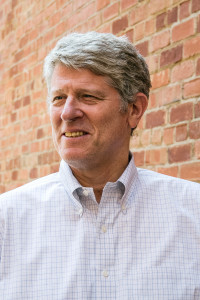
With Thanksgiving just around the corner, food blog “Serious Eats” works as a great resource for recipes and other food-related content and education. The website was founded by Grinnell alumnus Ed Levine ’73 and features recipes sharing how to roast the best pork loin, articles on the science behind the vanilla bean, guides to the best food trucks in Los Angeles and taste tests of the best supermarket bacon.
During and after undergrad, Levine didn’t start out creating food content. While at Grinnell, Levine was highly involved with the concert scene, holding positions as the concerts chair and social coordinator.
“I spent all my time listening to jazz, blues and rock and roll,” he reflected.
Upon graduation, Levine went back to his hometown in New York City and became heavily involved in the music world. He produced concerts for parks and museums and wrote for outlets such as Rolling Stone and the New York Times.
He also became the manager of the Grammy nominated jazz band the Heath Brothers and even took private lessons from Jimmy Heath himself.
“It was just a continuation of what I did at Grinnell,” he said. “I did everything that I dreamed of doing in Burling Library.”
After ten years in the music industry and a stint at an advertising agency, Levine started co-running a creative agency and consulting company. This was when he wrote “New York Eats,” his first food-related book as a suggestion from his wife.
“I was just managing a company and wanted a reward, and at the time I wanted something that was mine and not collaborative,” he said. “I wrote from six to eight in the morning before I went to work, and on the weekends I would go do food exploring in different neighborhoods in New York.”
The book generated buzz when it was published in 1996, including a review from the New York Times.
“Someone from the Times called, and I thought it was a joke,” Levine recollected. “They were like, ‘You want to write about your book, can you take us around New York?’ And that’s how my whole food thing started. It was a happy accident.”
Levine quit his job at the consulting agency and went on to become a freelance food writer for multiple periodicals, including GQ, BusinessWeek and the New York Times.
What was unique about Levine’s writing style is that he focused on more economical fare, along with the people who made them.
“I focused on the food I could afford to eat, like bread, sausage and chocolate,” he said. “I discovered all these artisanal food makers in New York who weren’t being … noticed by anyone and sort of made them the stars.”
This philosophy is also reflected in the name of Levine’s website.
“‘Serious’ [is] the adjective I use when I come across something I particularly love. It wasn’t meant literally,” he said. “It’s kind of ironic because [I] don’t write about caviar and foie gras.”
The idea for “Serious Eats” stemmed from Levine’s desire to create “a gathering place for people who were passionate about food.” The website launched in December 2006 with the help from a young coder named David Karp, who later became the founder of Tumblr.
Six million unique monthly users later, Levine is now launching a food podcast. Entitled “Special Sauce,” this will allow anyone to listen to “deep conversations with interesting people who have strong feelings about food.” The first episodes featured Phil Rosenthal, creator of Emmy Award-winning TV show “Everybody Loves Raymond,” and now restaurant investor.
Despite this career in gastronomic delights, Levine was not cooking when he first started writing about food.
“I didn’t think it would be about cooking, I thought it would be about eating,” he said. “I’m not one of those people who cook for therapeutic reasons. I wish I was, but I’ve become a pretty good home cook.”
Levine is doing the same with “Serious Eats” as he did with music, which boils down to “tell[ing] us what the good stuff is, and why we should care about it.”
“I was trying to do something I believed in that would enrich people lives with great recipes or great stories about food,” he said. “It was about getting people to eat more delicious food and tell[ing] them about the people who make the bread.”

















































